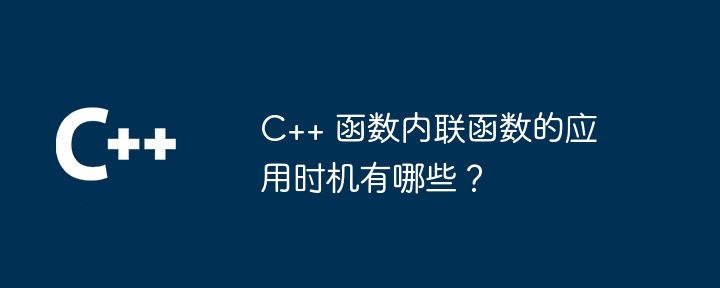Home >Backend Development >C++ >What are the opportunities to use C++ function inline functions?
What are the opportunities to use C++ function inline functions?
- WBOYWBOYWBOYWBOYWBOYWBOYWBOYWBOYWBOYWBOYWBOYWBOYWBOriginal
- 2024-04-12 09:45:02998browse
Application timing: Frequently called functions with lower computational overhead have shorter function bodies

C Function inline function application timing
Inline functions are a compiler optimization that inserts the function body directly into the call site instead of generating call instructions like a normal function. This can greatly improve performance, but it also has some limitations.
Application timing
Inline functions are suitable for the following situations:
- Frequently called functions: For frequently called functions Called functions, inlining can significantly improve performance by eliminating the overhead of function calls.
- Functions with lower computational overhead: The larger the size of the inline function, the greater the compiler optimization overhead. Therefore, functions suitable for inlining should have low computational overhead.
- Shorter function body: The size of the inline function cannot be too large, otherwise the compiler will refuse to inline it. Generally speaking, the length of a function body should not exceed 50 lines.
Practical case
The following is a practical case of an inline function:
inline int max(int a, int b) {
return (a > b) ? a : b;
}
int main() {
int x = 5, y = 7;
int max_value = max(x, y); // 内联调用max函数
cout << "Max value: " << max_value << endl;
return 0;
}In the above code, max function is an inline function that calculates the maximum of two integers. Since the max function is called frequently, has low computational overhead and a short function body, it is suitable for inline optimization.
The above is the detailed content of What are the opportunities to use C++ function inline functions?. For more information, please follow other related articles on the PHP Chinese website!

